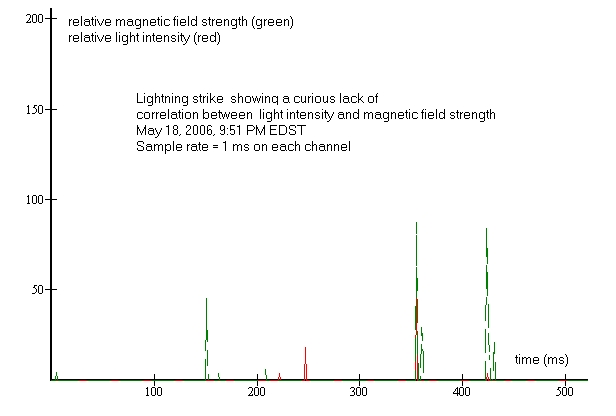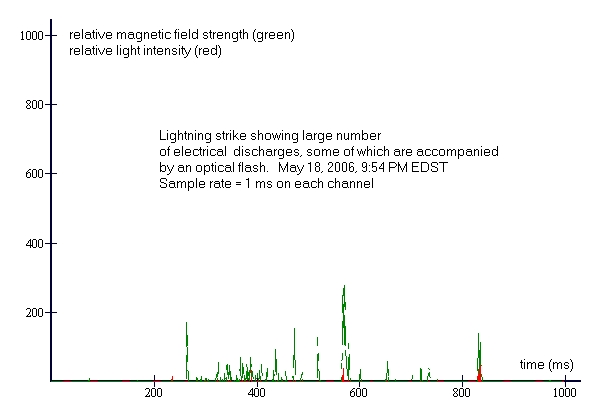
|

|
Recently I've been doing some computer-aided recordings of lightning strikes, wondering if there is a correlation
between the flash of a lightning strike, and its radio frequency emission. There should be, I think. You can hear
the radio emissions, called "static crashers" by radio amateurs, on the AM band if you tune between stations when a storm
is nearby. I'm using a pickup loop of wire a foot in diameter to detect the magnetic part of the radio emission at about
1 MHz. To pick up the flash, a silicon solar cell is taped to a nearby window.
The A/D card in my computer reads both channels once per millisecond. The magnetic field strength is a measure
of the current in the strike, and should be roughly proportional to the light emitted. At least, that's the hypothesis.
This kind of data acquisition is technically easy to do.
The graphs below are a record of two lightning strikes,
both from the May 18, 2006 storm which passed about 4 to 5 miles north of my location. The results are surprising.
The graphs show that the correlation is less than one would expect. I'm now refining my apparatus, to see if the lack
of close correlation is an artifact of the apparatus or methods I'm using, or some science not yet understood.


return to home page
|

|

|

